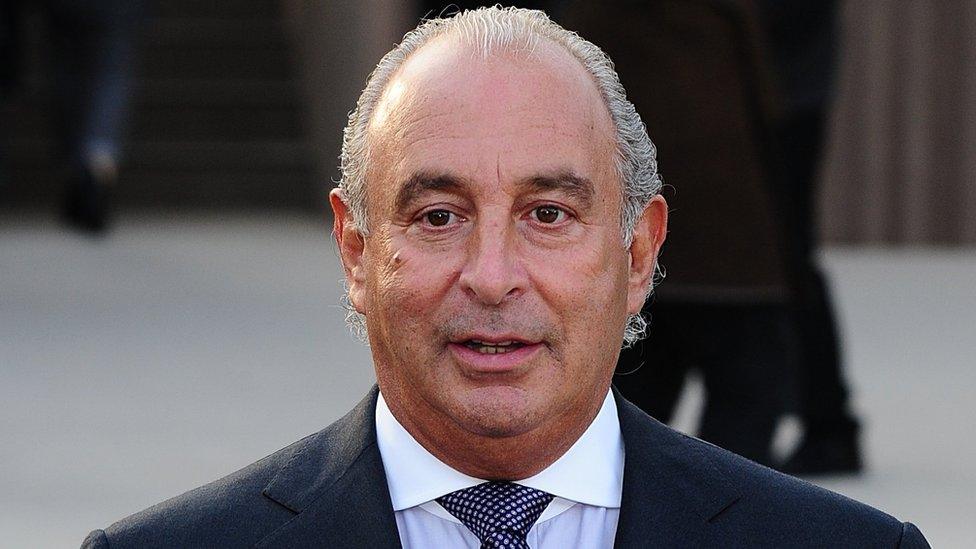Sir Philip Green hits back at Lord Hain for injunction breach
- Published
Monaco, models and money – who is retail mogul Sir Philip Green?
Sir Philip Green has said it was "outrageous" for Lord Hain to name him as the man who prevented the Telegraph publishing allegations of sexual and racial harassment.
He said the Labour peer also failed to disclose his financial links to the law firm representing the newspaper.
Sir Philip has denied the allegations and said he would lodge a formal complaint with the House of Lords.
Lord Hain said he "resolutely" stands by what he said in the Lords.
The peer, who has insisted naming the retail tycoon was in the public interest, said in response to the criticism from Sir Philip: "I stand resolutely by what I've said and neither retract nor apologise for standing up for human rights."
He described Sir Philips's complaint as a "malevolent diversion".
Allow X content?
This article contains content provided by X. We ask for your permission before anything is loaded, as they may be using cookies and other technologies. You may want to read X’s cookie policy, external and privacy policy, external before accepting. To view this content choose ‘accept and continue’.
He has also "categorically" denied that he was aware of law firm Gordon Dadds' work with the Telegraph and said the firm played "absolutely no part" in his decision to name Sir Philip.
In a statement to the BBC, Sir Philip said: "As many people have said, Lord Hain's blatant disregard of a judgement made by three senior judges is outrageous."
Sir Philip has been the centre of an eight-month investigation by the Daily Telegraph.
The paper says that former employees of the businessman have accused him of sexual and racial harassment.
But the Court of Appeal granted Sir Philip an injunction, preventing the paper from naming him.
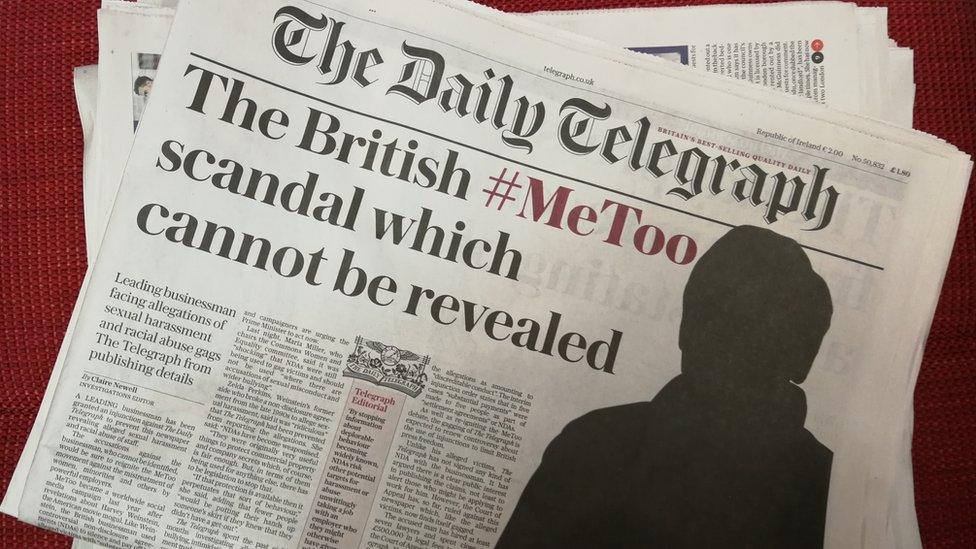
On Wednesday the Telegraph reported "a leading businessman" was granted an injunction., external
The paper said interviews with five members of staff revealed that alleged victims had been paid "substantial sums" in return for legal commitments - non-disclosure agreements (NDAs) - not to discuss their alleged experiences.
NDAs are used to prevent people from discussing confidential information and keep trade secrets private, but have also been used to keep allegations of wrongdoing out of the press.
Sir Philip has "categorically and wholly" denied allegations of "unlawful sexual or racist behaviour".
Why was he named in Parliament?
Lord Hain said the details were "clearly in the public interest"
Although the press were gagged, MPs and peers are protected from being prosecuted over statements made in the Commons or Lords under Parliamentary privilege.
Labour peer Lord Hain identified the Topshop boss in the Lords on Thursday, saying he felt it was his duty to do so because "it was in the public interest".
The Telegraph and the media at large were then entitled to report Lord Hain's statement in Parliament, even though the injunction had been issued by the courts.
The former Neath MP was criticised by some Parliamentarians over his decision to flout the court's ruling.
Former Lord Chief Justice Baron Judge said: "The consequences are so serious. Whatever we think of Sir Philip... he's entitled to go to a court as much as anybody else."
What does Sir Philip say?
Sir Philip has said in a statement that he "wholly and categorically" denies any allegation of "unlawful sexual or racist behaviour".
On Friday he said he had been advised that Lord Hain's actions are likely to have breached the House of Lords Code of Conduct.
Since Lord Hain spoke, it has emerged he is a global and government adviser at Gordon Dadds, external, the law firm used by the Telegraph.
Sir Philip also said that if Lord Hain had read the judgement in the case - as he says the peer should have done if he is talking about it - he would have seen the firm's name on the first page.
Gordon Dadds said Lord Hain had not obtained any information from it regarding the case, "including any information which would enable him to identify Philip Green as having any involvement in it".
Sir Philip is currently in Tucson, Arizona, but refused to speak to a Sky News crew who approached him there on Friday, telling them they were "being intrusive".
Who is Sir Philip Green?
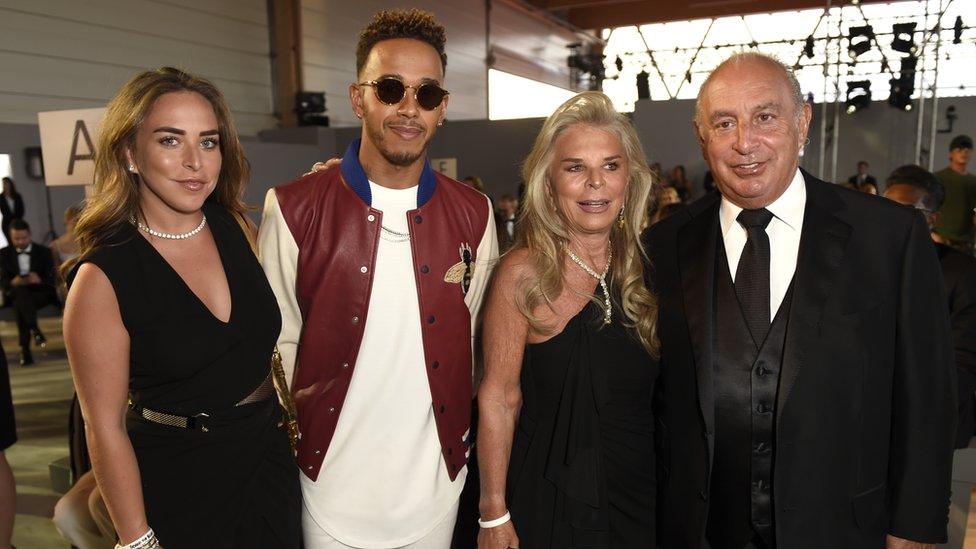
Sir Philip Green, right, with his daughter Chloe, F1 driver Lewis Hamilton, and his wife Tina
Sir Philip Green used to be known as the king of the High Street - but he was later branded the "unacceptable face of capitalism".
He built a fortune from a retail empire that includes Topshop, BHS, Burton and Miss Selfridge.
BHS - the retail chain he sold in March 2015 for £1 - went into administration a year later, leaving a £571m hole in its pension fund.
He later agreed a £363m cash settlement with the Pensions Regulator to plug the gap.
He and his wife Cristina are estimated by Forbes to be worth £3.8bn.
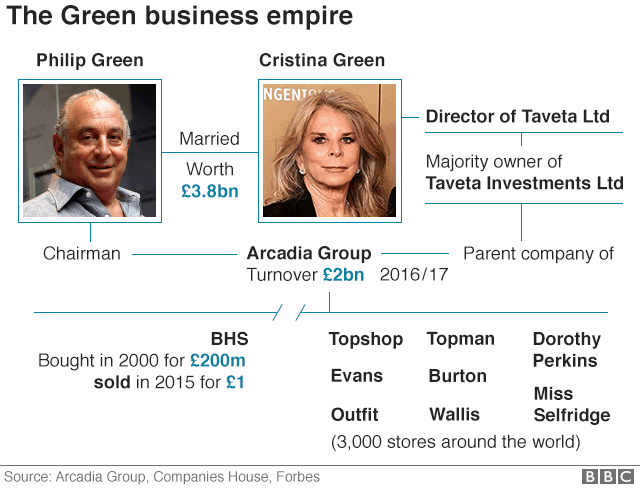
- Published25 October 2018
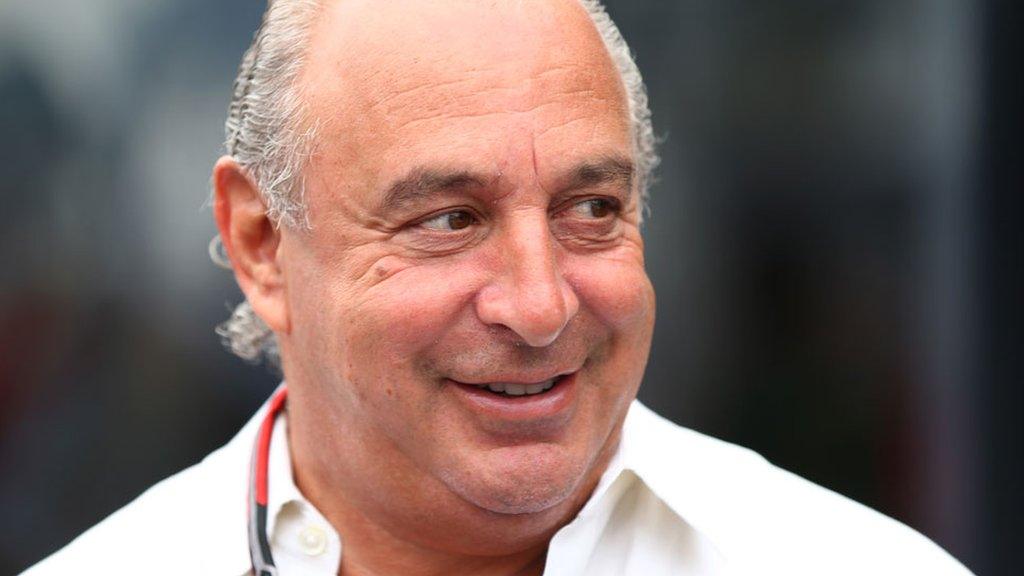
- Published26 October 2018
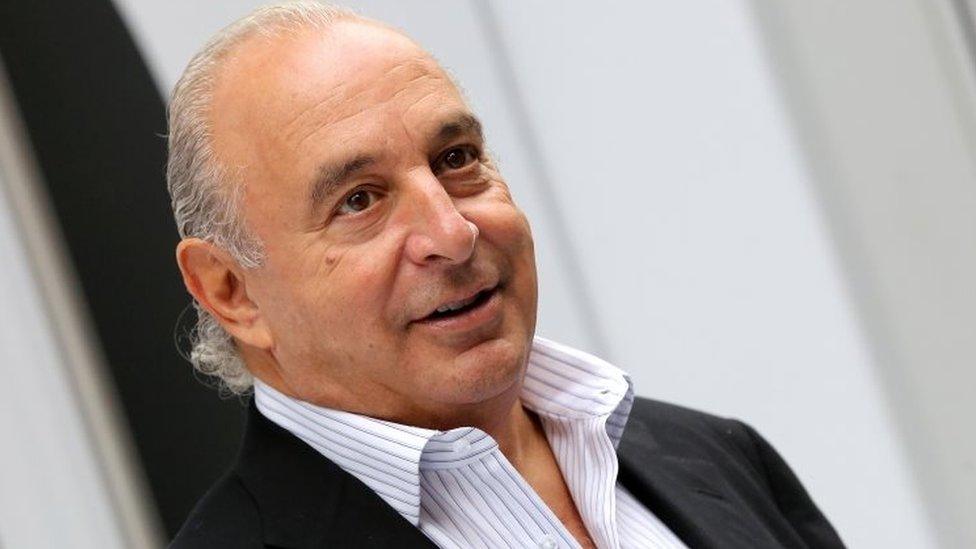
- Published27 November 2020
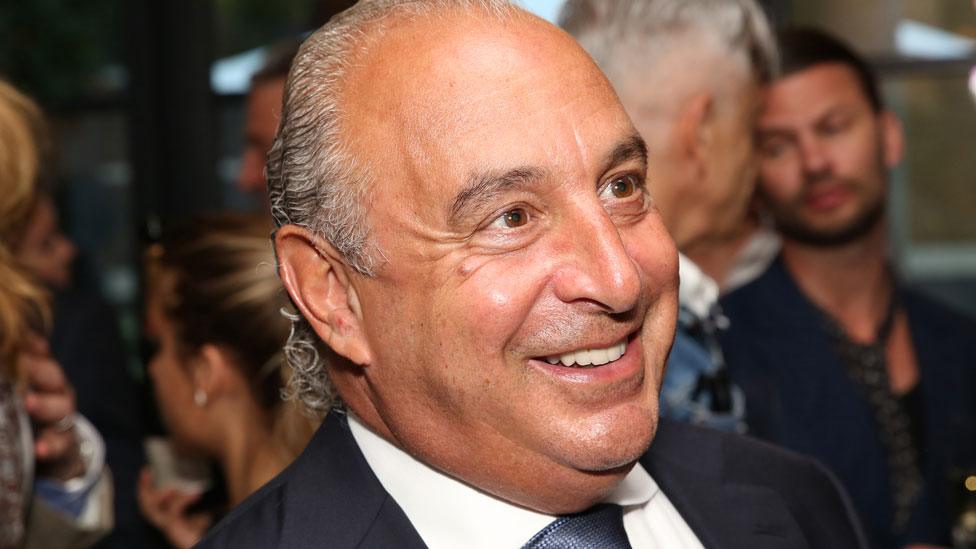
- Published26 October 2018
